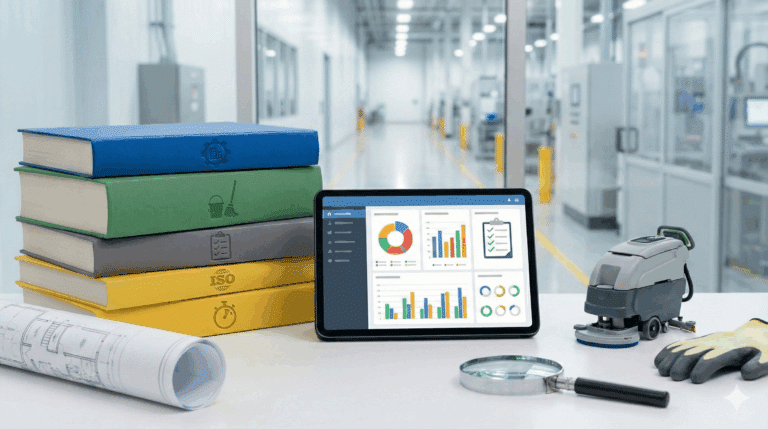Fuel consumption is one of the most critical variables for the operation of transport and logistics companies. To audit and maintain proper control of it, it is essential to work simultaneouslyon three fronts: infrastructure and equipment, human resources and technology.
Land freight and logistics transport companies constitute one of the pillars of the economy. Not in vain, more than 92% of the national cargo is currently moved by trucks, vans and light urban delivery vehicles.
In order to these fleets operate efficiently, it is essential to have modern, safe and well-maintained vehicles. But we also need the necessary fuel that allows our fleet to carry out its work constantly and safely.
This implies that logistics companies require specialized auditing and control systems that help them safely manage the respective fuel stocks for their vehicles, as well as control the use and replenishment processes.
Fundamental factors to ensure that trucks, vans and delivery vehicles fulfill their vital function along streets and highways.
What is a fuel audit and what are its advantages?
Although fuel is one of the central components in a company’s cost structure, it is also, at the same time, one of the most difficult to control. This is because a large proportion of human contributors are still directly involved in the supervisory chain.
According to market analysts, fuel consumption represents between 5% and 30% of a company’s costs, depending on the size of its fleet and the technical characteristics of the vehicles that comprise it.
For this reason, experts agree that reducing the cost of this input is essential to improve margins and thus ensure that the business is truly profitable.
Unfortunately, it is also very common that fuel usage ends affected by bad practices by fleet managers themselves. In fact, many of these “professionals” consider that the actions aimed at reducing consumption and achieving greater efficiency are “complex, unnecessary and expensive tasks which are not worth implementing.”
This state of the art requires applying, at all times, a strategy aimed at auditing and controlling fuel consumption in all the vehicles that make up a fleet, both globally and individually.
This includes trucks, pickup trucks, vans, and any other company-owned units. As well as the private vehicles of executives, managers, bosses and employees who use corporate fuel for work-related tasks (field service for example).
Only through an adequate management program each liter of fuel purchased and stored by the company will be used with greater rigor and efficiency. Practice that ultimately has a direct impact on short, medium and long-term results.
To achieve this goal, we requirea “fuel audit”, which consists of a system designed and applied to control complete fuel traceability. In order to achieve this goal, we can use tools to manage consumption en route, detect illegal charges or recharges, prevent the use of adulterated products, and avoid any type of theft or embezzlement, among other valuable options
In the same way, it is necessary to prepare and issue periodic reports, where we can describe detected facts or anomalous situations, in such a way that the respective observations and/or suggested measures are exposed, in accordance with the previously established objectives.
The audit must serve, then, to verify compliance with plans, programs and budgets, as well as to prepare a detailed accounting and suggest courses of action to resolve problems, crises or contingencies.
How to structure an adequate auditing fuel program?
To undertake this task successfully, we must work simultaneously on three critical fronts: equipment and infrastructure, human resources, and technology.
This implies carrying out the following actions:
Hire reliable suppliers
It is essential to carry out market studies that consider both the experience of the company and its drivers. This will allow proper network management to contact and consolidate strategic alliances with the most valuable stakeholders in the sector.
In the same way, it is important to maintain permanent contact with this allies, in order to ensure permanent availability of the product, as well as a quality that guarantees the correct functioning of our fleet.
Take care of the state of the assets
Scheduled vehicle maintenance is essential to ensure efficient fuel management. Of course, not only the condition of engines, intake systems, injectors, pumps and filters should be checked. It is necessary to control the state of other components such as tires, brakes, suspension, transmission and hydraulic systems that also influence the greater or lesser fuel consumption.
In addition, we should not forgetthat a vehicle without maintenance consumes more fuel, but it is also more likely to be involved in accidents.
Homogenize the stock of vehicles
The larger the fleet, the more care is required to control fuel consumption. This becomes more apparent when different types of vehicles (and engines) are used.
The ideal is to have a fleet which would be uniform and standardized as possible. This will help identify behavior patterns and/or failures, centralize driver training and ensure lower consumption.All of which translates into maximum productivity.
Train Human Capital
Much of the excessive fuel consumption in a fleet is due to poor driving. For this reason, it is vital to offer company’s drivers training courses, workshops and other periodic activities that motivate them to improve their behavior and commitment.
It is also important to invest in good working and safety conditions, which help to eliminate bad habits such as sudden acceleration, excessive braking, or incorrect use of gears, among others driving failures.
Importance of digital tools
An efficient fuel audit also requires technological support. This need increases as the number of vehicles and drivers grows, because a more complex structure can no longer rely on simple human skills.
Fortunately, modern computer technology today collaborates decisively with fleet management, providing innovative and specially designed solutions for fuel control.
In fact, the current market offers quality applications, which provide the following functionalities:
- Keep records of the supplies made to each vehicle, thus providing reports of their respective average fuel consumption.
- Collect data and information about each driver and his driving style.
- Store and process comparative data from the use of fuels supplied at different stations on the route.
Another interesting aspect that should be prioritized when we choose a fuel control software is its ability to collect, organize and provide real-time data on the route and location of vehicles.
This information allows to verify if the operators respect the planned routes, if they drive at the appropriate speed, brake outside the suggested pattern or if they make too many stops along the route, among other actions that affect the greater or lesser consumption of fuel.
All these features translate into better business management, since the software provides relevant information and data for the respective tactical and strategic decision making.
To directly attend to the care of this critical variable, DataScope offers its “Checklist for Storage and Refueling”. Through this app, it is possible to fully monitor critical variables such as the relationship with the fuel supplier, state of infrastructure, machinery and supplies used in storage and loading processes, inspection and maintenance procedures, and analysis of potential risks, among others advantages.
https://datascope.io/en/template/transport-and-logistics/Fuel-Auditfa3f9?id=135939
Through this effective and practical checklist, the teams in charge of the audit will be able to circumscribe their actions according to precise parameters, preparing in real time and directly from their own mobile devices, detailed reports and records of the actions necessary to meet the stipulatedobjectives.
All this translates into maximum efficiency, which, in turn, contributes to optimizing the performance of the company’s resources, with the consequent benefit for its competitiveness, as well as to focus on achieving the strategic objectives set.






